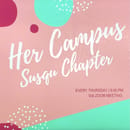This summer I had the amazing opportunity to live away from home (outside of college) for the first time. Granted, I didn’t go far, but I did move in with my brother, his roommate, and her three-year-old daughter, River. Not only did I get to experience all of the joys and hardships that come with living with a toddler, but the experience was especially unique because River is almost completely deaf. This means that instead of your typical three-year-old gibberish that’s starting to solidify into full sentences, she communicates almost exclusively in sign language.
Before meeting River, the signs I knew were few (and half of them were insults), so I had a lot to learn. She opened my eyes to a lot of things this summer, particularly how often I interact with the Deaf Community without really realizing it. I started learning sign language with the basics that were most important to River (binky, water, cookie, etc.) but these signs didn’t help me at all when I was serving deaf customers at work. I’ve made it my long-term goal to keep learning signs even when I’m not with River every day so that when she gets older and is really good at using her signs, I’ll still be able to keep up.
Here’s a list of important signs I think everyone should start with when getting into ASL (because knowing the sign for binky isn’t going to help us all).
- The ASL Alphabet
- Hello
- My name is…
- Nice to meet you
- How do you sign… *Then finger spell*
-
- Please
- Thank you
- Sorry
- Excuse me
-
- Goodbye
There are tons of ways you can learn ASL online from classes to Youtube tutorials, but I think these signs are a good starting point for you to be able to show everyone that you encounter that you’re trying. Remember that ASL is a whole language in itself that goes far beyond just translating from English and has its own set of grammar rules, but the basics are the best place to start. With these, you should be able to get a jump start on any conversation, as long as the person you’re signing with is patient.



